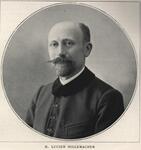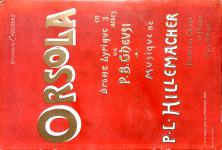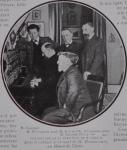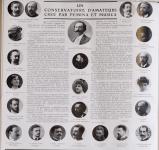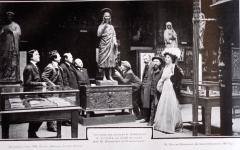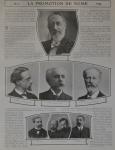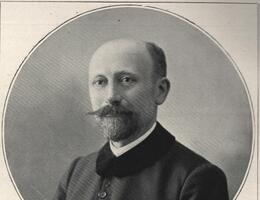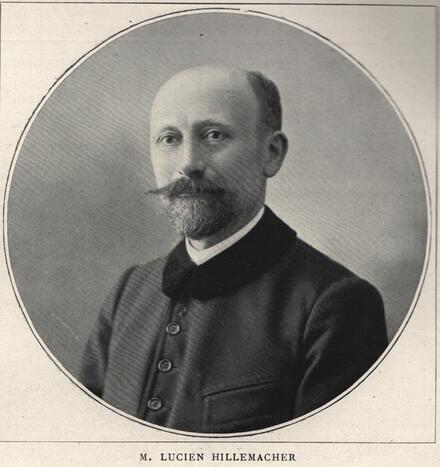
Lucien HILLEMACHER
1860 - 1909
Composer
The career of Lucien Hillemacher, a pupil of Jules Massenet at the Paris Conservatoire, is closely linked to that of his brother Paul, with whom he co-signed most of his works under the name “P.-L. Hillemacher”. Their first publications date from Paul’s return from the Villa Medici, but their collaboration had to be at a distance by the following year: four years after his elder brother, Lucien won the Prix de Rome for musical composition with the cantata Fingal. From Italy, he collaborated on the composition of the symphonic legend Loreley, which won the Prize of the City of Paris in 1882. After his stay in Rome, and until Lucien’s premature death, the two brothers produced a great number of works for various European stages: the opera Saint Mégrin and the opéra comique Une aventure d’Arlequin (La Monnaie, 1886 and 1888); the pantomime One for Two (London, 1894); the drames lyriques Der Flutgeist (Karlsruhe, 1896) and Orsola (Paris Opera, 1902); the poème lyrique Circé (Opéra-Comique, 1907); and incidental music to Haraucourt’s Héro et Léandre (Au Chat noir, 1893) and George Sand’s Claudie (1900). Their work also ventured into the field of oratorio (La Légende de Sainte Geneviève, 1886), religious drama (La Passion, 1887), orchestral suites (La Cinquantaine, 1888), mélodies and instrumental concertante pieces (notably for the Conservatoire’s trumpet and harp competitions). They also co-wrote a biography of Charles Gounod published in 1906.

